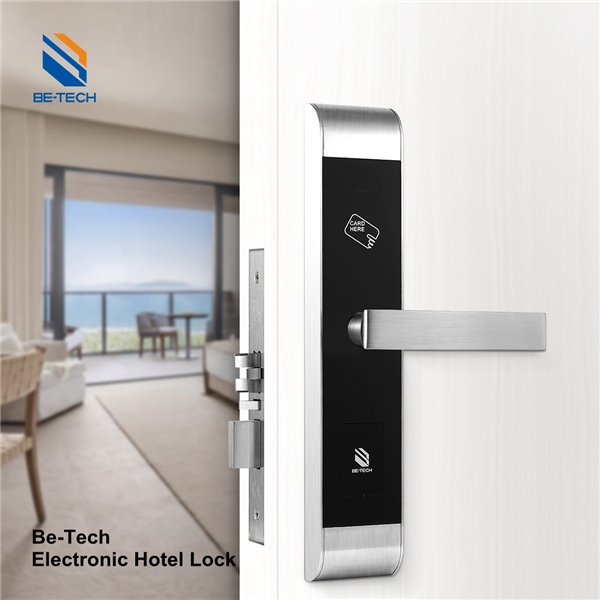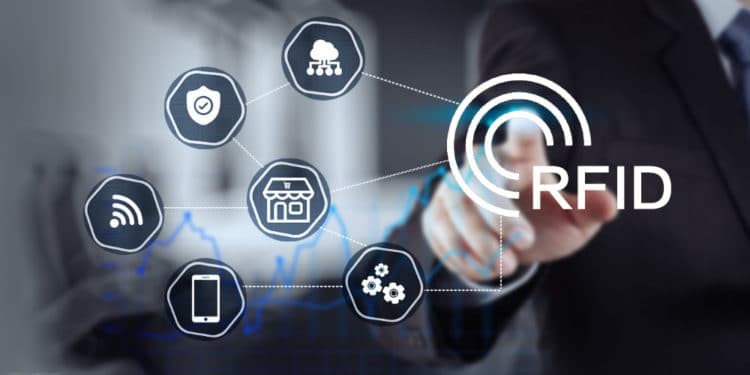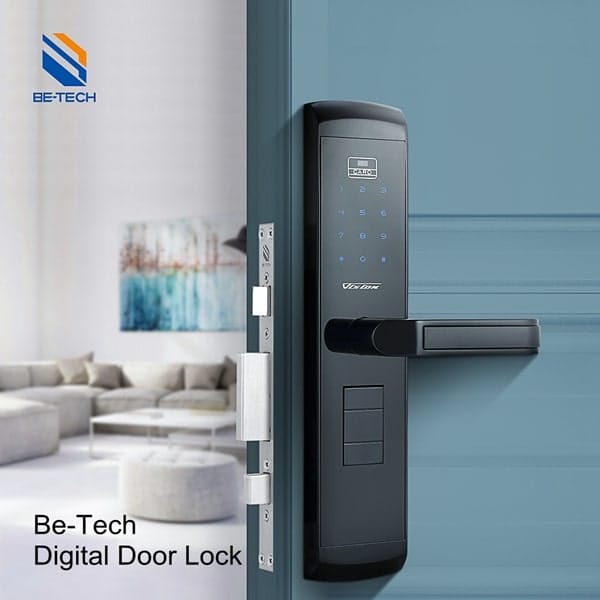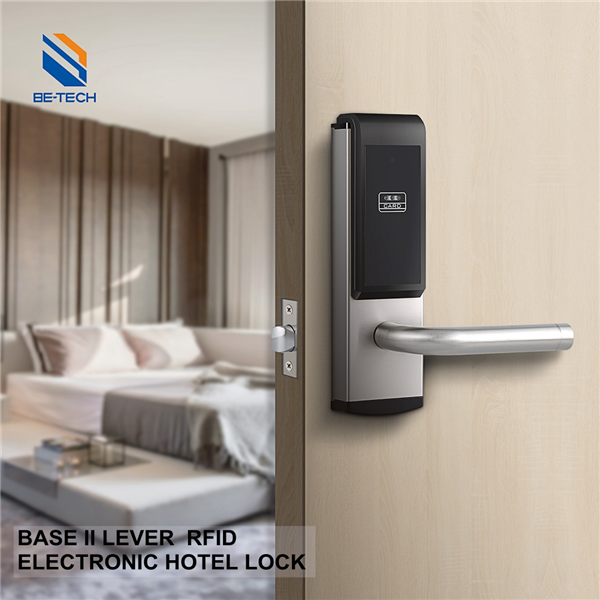In today’s hospitality landscape, electronic locking systems represent a critical security investment with substantial operational implications. According to the 2024 Hospitality Security Report, 87% of hotel data breaches originate from physical security vulnerabilities, making robust door access solutions essential rather than optional. This comprehensive guide analyzes the latest electronic lock technologies through the lens of security compliance, operational efficiency, and guest experience.
Understanding Modern Hotel Electronic Lock Architecture
Modern hotel locking systems combine sophisticated hardware and software components to create a secure, manageable access ecosystem. At their core, these systems consist of:
Physical Components
The foundation of any electronic lock is the mortise lockcase – a reinforced steel mechanism embedded within the door. Quality systems use SUS304 stainless steel construction to resist wear and corrosion while meeting rigorous safety standards:
- EN14846 certification for electromechanical locks
- EN 1634-1 fire resistance ratings
- UL certification for North American markets
Most hotel electronic locks feature a three-point latch construction with anti-friction mechanisms and high-strength deadbolts (typically 20mm throw) that automatically retract when the inside handle is operated – a critical “panic release” safety feature required by building codes worldwide.

Digital Authentication Systems
Electronic locks employ various credentialing technologies, with RFID (Radio Frequency Identification) being the current industry standard. Operating on the 13.56MHz frequency band, quality RFID locks support:
- ISO 14443A standards with MIFARE Classic compatibility
- Advanced Encryption Standard (AES) protection for credential data
- Transport Layer Security (TLS) protocols for system communications
- Non-volatile memory storing 414-1,000 access events
Locks connect to management software platforms like Be-Tech’s BIS HOTEL that handle credential issuance, access permissions, and audit trail management while integrating with property management systems.
Key Electronic Lock Technologies for Hotels in 2025
RFID Hotel Lock Systems
RFID hotel locks represent the most widely deployed technology, balancing security, convenience, and cost-effectiveness. These contactless systems eliminate mechanical wear while providing enhanced security through encrypted credentials.
Key advantages include:
- Streamlined guest experience with tap-to-unlock functionality
- Reduced maintenance costs compared to magnetic stripe systems
- Enhanced security through encrypted communication protocols
- Multi-application capabilities supporting room access, amenities, and payments on a single credential
According to implementation data, hotels transitioning to RFID systems report a 73% reduction in security-related incidents and 14+ hours monthly labor savings from eliminated key management tasks.
Mobile Access Integration
The latest generation of hotel locks supports mobile credentials, allowing guests to use smartphones as digital keys through Bluetooth Low Energy (BLE) and Near Field Communication (NFC) technologies.
Properties implementing mobile access solutions report:
- 68% of guests prefer mobile access when given the option
- Check-in time reduced by 4-7 minutes per guest
- Front desk traffic decreased by 41% during peak periods
Be-Tech’s BASE II ‘RETRO’ RFID with BLE compatibility represents this evolution, maintaining traditional RFID functionality while supporting mobile access through integration with major hospitality apps.
Biometric Authentication
Biometric hotel locks add an additional security layer by validating physical characteristics like fingerprints or facial features. While still emerging in mainstream hospitality, biometric solutions are gaining traction for VIP areas and ultra-luxury properties.
Implementation considerations include:
- Privacy regulations governing biometric data storage
- Authentication speed (modern systems achieve <1 second verification)
- Backup access methods for system failures or enrollment issues
- Integration complexity with existing PMS systems
Technical Specifications Comparison
When evaluating electronic lock systems, facility managers should focus on these critical specifications:
| Feature | Premium Tier | Mid-Range | Economy |
|---|---|---|---|
| Example Model | GUARDIAN RFID | VISUAL III RFID | BASE RFID |
| Encryption | AES-256-GCM + TLS 1.2 | AES-256 | AES-128 |
| Battery Life | 18 months (50,000 operations) | 12-15 months | 12 months |
| Audit Trail | 414 events | 1,000 events | 414 events |
| Humidity Tolerance | 95% RH | 90% RH | 85% RH |
| Finish Options | Multiple Finishes | Aluminum/Black | Limited |
| Mobile Integration | Advanced | Standard | Basic/Optional |
| Approximate Cost | $285-$320/door | $250-$290/door | $180-$220/door |
Battery Performance & Management
Most hotel electronic locks operate on battery power, eliminating complex wiring requirements. Quality systems utilize 4×AA alkaline batteries with sophisticated power management:
- Duracell ProCell AA batteries deliver optimal performance/lifespan ratio
- Adaptive power management enables 50,000+ operations per set
- Low-battery warnings provide 30+ days advance notification
- Emergency power options include external ports for critical access
Be-Tech’s GUARDIAN series demonstrates industry-leading efficiency with an 18-month battery life under normal usage conditions (approximately 45 daily activations).
Environmental Resilience
Hotels operate in diverse environments requiring locks that withstand varying conditions:
- Operating temperature range: -20°C to 60°C (tested from -25°C to 70°C)
- Humidity tolerance: Up to 95% non-condensing environment
- Material quality: SUS304 stainless steel for maximum corrosion resistance
- Specialized coastal variants: Enhanced protection against saline exposure
The GUARDIAN G0 RFID is specifically engineered for outdoor installations facing challenging environmental conditions, with sealed RFID modules and enhanced protective finishes.
Implementation Strategy & ROI Analysis
Property Size Considerations
Implementation strategies and lock selection should align with property size and operational complexity:
Small Boutique Hotels (≤50 Rooms)
- Recommended: BASE RFID Series
- ROI Timeline: 2.1 Years
- Cost Savings: $8,220 vs. mechanical locks over 5 years
Mid-Scale Properties (50-200 Rooms)
- Recommended: VISUAL III Series
- ROI Timeline: 2.8 Years
- Labor Savings: 14 Hours/Month on key management
Resort Complexes (200+ Rooms)
- Recommended: GUARDIAN RFID
- ROI Timeline: 3.2 Years
- Security Impact: 73% fewer security breaches
Installation & Training Best Practices
Successful implementation requires:
- Professional installation by certified technicians
- Proper door preparation (35-80mm thickness for EURO mortise)
- Staff training programs covering:
- Front desk operations and credential management
- Housekeeping protocols
- Maintenance procedures
- Security incident response
Be-Tech provides comprehensive training materials and certification programs to ensure proper system operation and maintenance throughout the product lifecycle.
Maintenance Protocol Development
Proactive maintenance extends lock lifespan while ensuring reliable operation:
Quarterly Checklist
- Test battery voltage (minimum 2.9V per cell)
- Inspect mechanical components
- Clean RFID reader surfaces
- Verify proper door alignment
- Update firmware as needed
Annual Procedures
- Complete battery replacement
- Lubricate mechanical components
- Extract and archive audit trails
- Validate emergency operations
- Review access permissions
Security & Data Protection Considerations
Modern hotel locks must address both physical security and data protection requirements. With recent updates to PCI DSS 4.0 and global GDPR enforcement, electronic locks now play a critical role in overall data security compliance.
Encryption & Protection Mechanisms
Leading systems implement multiple security layers:
- AES-256-GCM encryption for credential data (military-grade protection)
- Dynamic key rotation to prevent compromise
- Secure boot verification ensuring firmware integrity
- Isolated security zones preventing cross-contamination
- Real-time monitoring with anomaly detection
These protections extend beyond room access to safeguard guest personally identifiable information (PII) throughout the property’s systems.
Audit Trail & Forensic Capabilities
Comprehensive audit trails provide critical security oversight and incident investigation tools:
- Event logging capacity: 414-1,000 events in non-volatile memory
- Data points recorded: Card ID, timestamp, access result
- Retrieval methods: Mobile service units or wireless transmission
- Retention policies: Typically 90 days minimum
- Integration with security systems: CCTV timestamp correlation
According to hotel security directors, audit trail data proves instrumental in resolving approximately 78% of security incidents while providing operational insights for staffing optimization.
Future Trends in Hotel Access Control
AI & Predictive Intelligence
Next-generation systems are incorporating artificial intelligence for enhanced security and operational efficiency:
- Anomaly detection algorithms identify suspicious access patterns
- Predictive maintenance anticipates component failures before they occur
- Usage pattern analysis optimizes staffing and resource allocation
- Adaptive security responses based on threat assessment
Be-Tech’s development roadmap includes AI-enhanced systems that learn from usage patterns to improve both security and guest experience.
Environmental Sustainability Innovations
Energy harvesting technologies promise to reduce or eliminate battery dependency:
- Kinetic energy recovery from door operations
- Mini photovoltaic cells for supplemental power
- Thermal differential harvesting between interior/exterior
- Wireless power transfer technologies
These advancements aim to extend maintenance intervals or eliminate battery replacement entirely, reducing operational costs and environmental impact.
Blockchain & Distributed Security
Blockchain technologies are emerging as solutions for secure credential management:
- Immutable audit trails resistant to tampering
- Decentralized authentication reducing single-point vulnerabilities
- Smart contract integration for automated access provisioning
- Enhanced privacy protections for guest information
While still emerging in practical applications, blockchain implementations promise to address key vulnerabilities in traditional centralized systems.
Implementation Case Study: Luxury Resort Deployment
A recent implementation at a 412-room coastal luxury resort demonstrates the real-world impact of advanced electronic lock systems:
- Hardware Deployed: GUARDIAN RFID with mobile access integration
- Installation Timeline: 14 days (phased implementation)
- Staff Training: 4 hours per department
- Initial Investment: $297 per door (including installation)
- Operational Results:
- 67% reduction in lock-related maintenance tickets
- 89% guest satisfaction with access experience
- 41% decrease in front desk congestion
- $14,200 annual labor savings from streamlined operations
- ROI achieved in 2.7 years
Conclusion: Selecting the Optimal Hotel Locking Solution
The ideal electronic locking system balances security requirements, operational needs, and guest experience considerations. When evaluating options, prioritize:
- Security certifications matching your property’s compliance requirements
- Environmental specifications appropriate for your location
- Integration capabilities with existing property systems
- Lifecycle costs including maintenance and operational impacts
- Future expandability to accommodate emerging technologies
For properties seeking proven solutions with comprehensive support, Be-Tech’s range of electronic hotel locks offers options for every property type and budget, backed by 30+ years of manufacturing experience and global implementation expertise.
By approaching electronic locking as a strategic investment rather than simply a security requirement, hotels can realize significant operational benefits while enhancing guest safety and satisfaction in an increasingly competitive marketplace.









